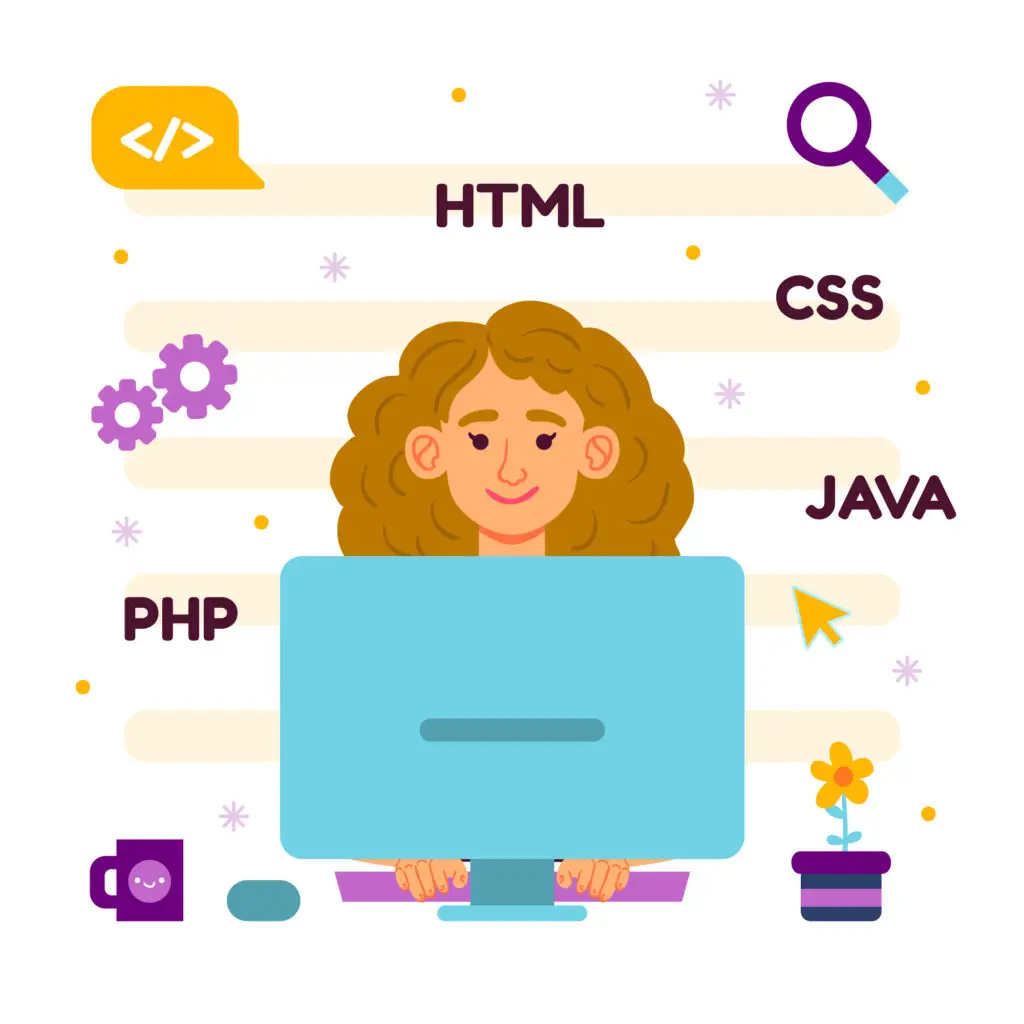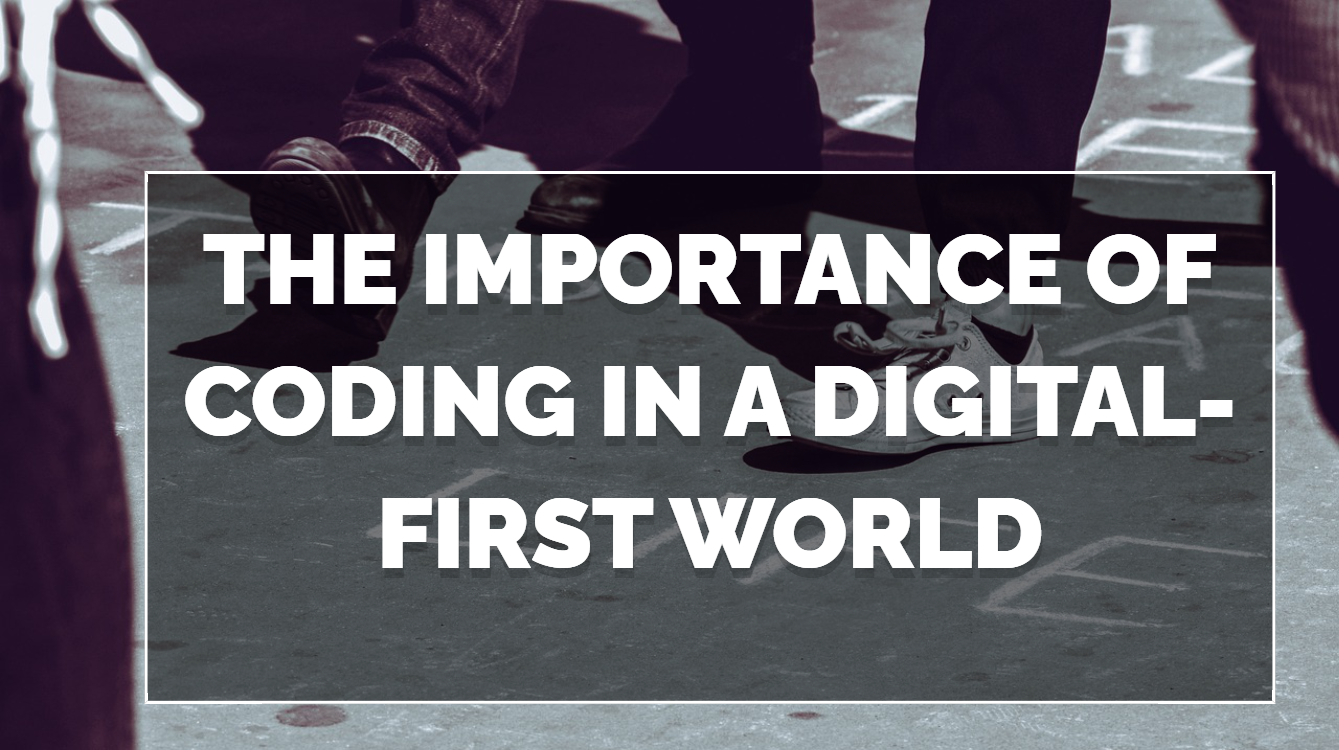
In today’s digital age, the importance of coding cannot be overstated. Coding, also known as programming, is an essential skill across various industries. The importance of coding lies in its ability to power modern technology, drive innovation, and enable individuals to create digital solutions and products. Recognizing the importance of coding equips professionals in business, healthcare, and creative arts with the tools they need to remain competitive and excel in their respective fields. Mastering the importance of coding is not just beneficial but necessary in our increasingly tech-driven world.
1. What is Coding?
At its core, coding is the process of writing instructions that a computer can understand and execute. These instructions, also known as code, are written in a programming language, which is a set of rules and syntax designed to communicate with computers. Think of coding as the language through which humans tell computers what to do. Computers, of course, do not understand human languages like English or Spanish, so coding languages serve as intermediaries that make communication between humans and machines possible.
When you write code, you are essentially giving a computer a set of instructions to perform specific tasks. These tasks can range from simple operations, such as displaying text on a screen, to complex processes like running an AI algorithm or controlling a robot.
2. The Importance of Coding in Today’s World

In the 21st century, coding is ubiquitous. From the apps on your smartphone to the websites you visit daily, coding is involved in the creation and maintenance of nearly all modern digital products. The rise of the internet, the proliferation of smartphones, and the advent of AI and machine learning have all been powered by coding.
Here are a few reasons why coding is important today:
a. Technological Advancements
Coding is the foundation of all technological innovations. Whether it’s building more efficient software systems, creating virtual realities, or developing cutting-edge AI algorithms, coding is at the heart of it all. Without coding, the tech-driven world we live in today wouldn’t be possible.
b. Automation and Efficiency
Coding allows us to automate repetitive tasks, leading to increased productivity. Whether it’s writing scripts to automate data entry, managing inventories, or running tests on new software, coding makes tasks more efficient, saving both time and resources.
c. Career Opportunities
As technology continues to evolve, the demand for skilled coders is growing rapidly. Coding is a valuable skill across many industries, including software development, cybersecurity, data analysis, finance, and even medicine. Whether you are a data scientist, a web developer, or an AI researcher, coding is an indispensable tool in your arsenal.
d. Problem-Solving and Logical Thinking
Coding teaches you to break down complex problems into smaller, manageable parts and approach them systematically. This type of logical thinking and problem-solving is beneficial not just in coding, but also in everyday life and other professional fields.
e. Creativity and Innovation
Contrary to the belief that coding is only about numbers and logic, coding is also a highly creative activity. It’s about finding innovative ways to solve problems and create something new. Whether you’re developing a game, building a website, or creating a new app, coding gives you the tools to bring your ideas to life.
3. The Basics of Coding Languages

To understand how coding works, it’s important to know that there are many different programming languages, each suited to particular types of tasks. Some languages are easier for beginners, while others are used for more advanced, specialized applications. Here’s an overview of some of the most popular programming languages:
a. Python
Python is one of the most widely used and beginner-friendly programming languages today. It’s known for its clear, readable syntax, which makes it easy to learn for beginners. Python is versatile and can be used in web development, data science, machine learning, automation, and more. The simplicity of Python makes it an ideal starting point for those new to coding.
b. JavaScript
JavaScript is primarily used for web development, enabling interactive elements on websites. When you browse the internet and interact with elements on a webpage (like clicking a button or submitting a form), it’s likely that JavaScript is powering that interaction. It’s also one of the core technologies used alongside HTML and CSS to create modern web applications.
c. Java
Java is one of the oldest and most popular programming languages. It’s widely used in enterprise environments, for mobile app development (especially Android apps), and for backend services. Java is known for its portability—programs written in Java can run on any platform that has a Java Virtual Machine (JVM), which makes it a highly versatile and reliable language.
d. C/C++
C and C++ are lower-level programming languages that offer more control over hardware and memory. C is often used in systems programming (like operating systems), while C++ is used for applications that require high performance, such as video games or real-time systems. Though these languages are more complex than Python or JavaScript, they provide a deep understanding of how computers work at the hardware level.
e. Ruby
Ruby is a dynamic, object-oriented programming language that’s often used for web development. The Ruby on Rails framework has made it a popular choice for startups and developers looking to quickly build web applications. Ruby emphasizes simplicity and productivity, making it a good language for both beginners and advanced programmers.
f. Swift
Swift is Apple’s programming language for iOS and macOS development. It’s designed to be fast, modern, and easy to use. If you want to develop applications for iPhones, iPads, or Macs, learning Swift is a must.
g. PHP
PHP is a server-side scripting language widely used for web development. It is the language behind many popular content management systems (CMS), such as WordPress and Drupal. PHP allows developers to create dynamic, interactive websites that can connect to databases, process user input, and deliver real-time content.
4. How Does Coding Work?
At the most basic level, coding works by creating a set of instructions that a computer can follow to perform specific tasks. These instructions are written in a programming language and are typically executed by a compiler or an interpreter, depending on the language being used.
a. Writing the Code
The first step in coding is to write the actual instructions in a text editor or an integrated development environment (IDE). This is where the programmer types out the code using the syntax of the chosen programming language.
b. Compiling or Interpreting the Code
Once the code is written, it needs to be translated into machine code that the computer can understand. Some languages, like C++ or Java, require a compiler to translate the source code into machine code before it can run. Other languages, like Python or JavaScript, are interpreted, meaning the code is executed directly by an interpreter, line by line.
c. Running the Program
Once the code is compiled or interpreted, the program can be run. During this process, the computer executes the instructions written in the code, performing the tasks that the programmer has defined.
d. Debugging and Testing
Coding often involves a lot of trial and error. After running the program, developers usually need to debug it to fix any issues, such as errors or unexpected behavior. Testing the code helps identify these issues, which are then corrected before the program is deployed.
5. The Role of a Programmer
A programmer, or developer, is someone who writes code to build software, websites, mobile apps, or other digital systems. Programmers typically work in teams and are responsible for designing, writing, testing, and maintaining code. Their role can vary depending on the project:
- Front-End Developer: Focuses on the user interface (UI) and user experience (UX), writing code that determines how the software or website looks and behaves.
- Back-End Developer: Works on the server-side of the application, managing databases, authentication, and server-side logic.
- Full-Stack Developer: A developer who works on both the front-end and back-end, capable of building entire web applications.
- Mobile Developer: Specializes in writing code for mobile devices, typically using languages like Swift (for iOS) or Kotlin (for Android).
6. Benefits of Learning Coding
Learning to code offers numerous benefits beyond just the ability to write software. Here are some key advantages of learning to code:
a. Enhanced Problem-Solving Skills
Programming teaches you how to approach problems methodically. You learn to break down complex problems into smaller, manageable parts, making it easier to find solutions.
b. Career Advancement
As more companies adopt digital technologies, the demand for skilled programmers continues to rise. By learning coding, you can open up numerous career opportunities in fields like software development, data science, cybersecurity, and AI.
c. Building Your Own Projects
Learning to code empowers you to create your own projects, whether it’s a website, an app, or a game. You gain the ability to bring your ideas to life, potentially creating something that others can use or enjoy.
d. Job Flexibility
Coding skills provide job flexibility, allowing you to work from virtually anywhere. Many coding jobs offer remote work opportunities, giving you the freedom to choose your work environment.
7. Conclusion
Coding is much more than just writing lines of text. It is the language that connects us to the digital world, allowing us to create, innovate, and solve problems. Whether you’re building software for a business, creating a new game, or simply automating a task, coding is an invaluable skill in the modern world.
As technology continues to evolve and shape the way we live and work, understanding the basics of coding is becoming increasingly important. It’s not just for computer scientists anymore—coding is a skill that can benefit anyone, no matter their field of expertise. By learning to code, you open up a world of possibilities, from career growth to personal development, and become part of the digital revolution shaping the future.
Copyright © 2025 by techhelper.info All Rights Reserved.
